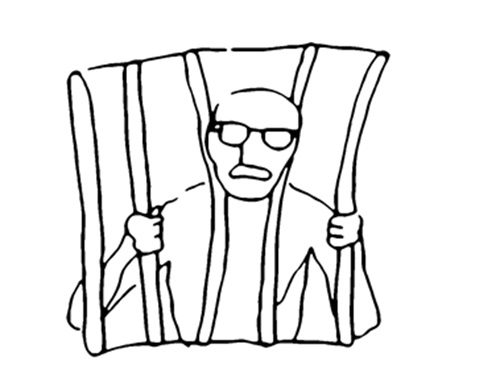
To many, it is an unseen problem. People denied mental health services who end up homeless or incarcerated as criminals. A few year ago, the Kennedy Forum at Chicago’s Palmer House Hilton, addressed this and other aspects of the lack of a functional community mental health system in the United States.
The Kennedy Forum was founded to enlist business leaders and government agencies in fully implementing the Mental Health Parity and Addiction Equity Act of 2008, which was amended by the Affordable Care Act, to guarantee equal access to medical care and help patients understand their rights.
According to former US Representative Patrick Kennedy and others who spoke at the event (called “The Cost of Doing Nothing”) untreated people with mental illness may be the most salient public health problem there is. “I have been out to Cook County Jail myself,” Rep. Kennedy told me in a one-on-one, exclusive interview. “It is the largest mental health facility in the nation.”
Chicago’s notorious Cook County 10,000-person Jail may be the largest in the nation, but “every jail in America” is a de facto mental health facility Rep. Kennedy told me because community mental health support in the US, outlined 50 years ago with President Kennedy’s Community Mental Health Act of 1963, “never got implemented.”
Patrick Kennedy is the youngest son of the late Sen. Edward Kennedy and served 16 years as Rhode Island’s Democratic representative in Congress. “If the nation wanted a good answer to Sandy Hook and Aurora” it would make a commitment to providing mental health care to any American who “suffers a psychotic break,” he said. We are not doing “what we know works.”
There is overwhelming evidence that mental health affects overall health, said Rep. Kennedy and US medicine needs to start doing a “check up from the neck up.” Currently, we have “a two-tier system”—one for health care and one for mental health care, he said, and the latter is “poorly reimbursed and poorly respected within the medical community.”
Others at the conference agreed. We have “under-funded and eliminated” community mental health services and people with mental illness are, not surprisingly, ending up in jail and prison said then Cook County Sheriff Tom Dart who participated on a panel called Models for Change: Addressing Mental Illness and Addiction in the Justice System.
The number of women with mental health issues is “exploding” in the judicial system said Sheriff Dart with as many as “18 out of 20 women [who are arrested] acutely psychotic.”
 No one is sure why. Mentally ill people, like the growing wave of disturbed women, have usually been arrested for “misdemeanors” said the sheriff which means they are not dangerous criminals and probably require mental health services which are currently almost absent as opposed to incarceration.
No one is sure why. Mentally ill people, like the growing wave of disturbed women, have usually been arrested for “misdemeanors” said the sheriff which means they are not dangerous criminals and probably require mental health services which are currently almost absent as opposed to incarceration.
Another problem with the underfunded system are patients who tell the sheriff they don’t want to leave jail because it is the “best treatment they have ever had,” said the sheriff. People who are in jail and do not have mental illness usually want to talk about their case and the fact that they are innocent, he said. Conversely, people who have mental illness often beg for help when they are released such as in housing. They are literally “craving a place to live,” said Sheriff Dart.
“Insurance companies have regularly and routinely denied benefits for people with mental illness” whether severe disorders or people who have alcoholism, addictions, eating disorders, panic attacks and more Rep. Kennedy told me in our interview. Addiction diseases may be diseases of denial in which a person will try everything before they seek help but acquainting them with resources, like anonymous, Twelve Step programs increases their chance of getting better and is a strong example of early intervention, Rep. Kennedy said.
This is an excerpt from the recently published book Food, Clothes, Men, Gas, and Other Problems.










